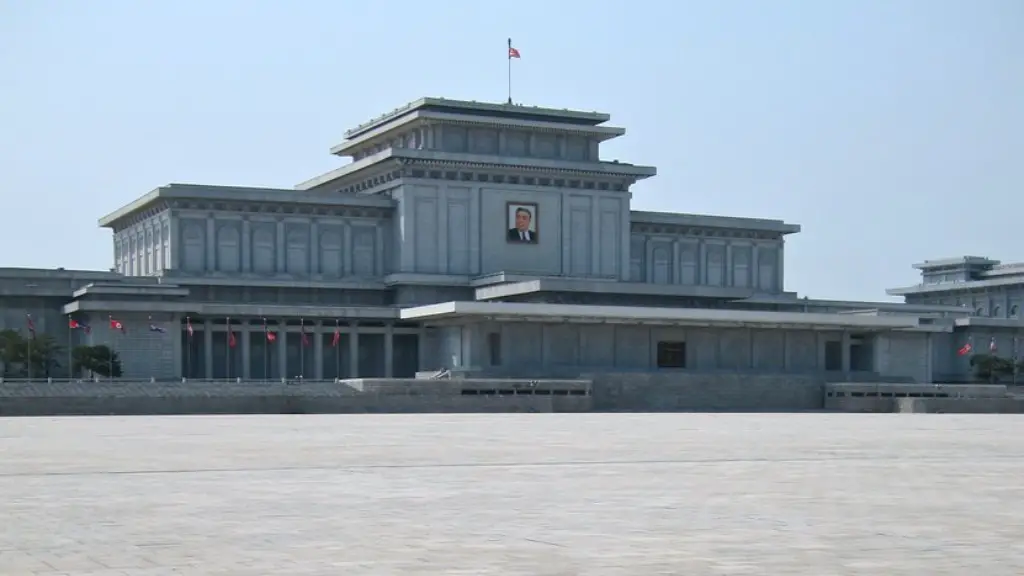Background information
North Korea is an officially atheistic republic. It did not have any state-promoted religion. Historically, the Korean culture has been largely influenced by Korean Shamanism, Buddhism, Taoism and Korean Confucianism. Before the rise of the Korean Communist Party in 1948, religion defined a major part of daily life in North Korea. Thereafter, it has been discouraged and persecuted by the state. The totalitarian regime has long sought to control and manipulate the Korean belief system.
Religious oppression
In recent decades, North Korea has drastically reduced religious liberties. Close government surveillance of churches has remained and North Koreans are allowed to practice only state-approved religious activities. Moreover, preaching of any religion is prohibited and if discovered, can be subject to imprisonment or sentence in labor camps. North Koreans are also only allowed to display and practice officially recognized festive customs.
Religious groups
North Korea’s sole authorized religions are Chondogyo and Juche, both of which are indigenous traditions. Chondogyo is a mix of Shamanism, Buddhism, Confucianism and Christianity. With Juche as the state ideology, it has become a local religion that encourages people to be self-reliant and to be loyal to the North Korean leader Kim Jong-Un. In addition, there are three officially recognized Christian denominations: Korean Catholic Church, Korean Protestant Church and Korean Presbyterian Church. These churches, however, are only allowed to hold mass services once a week, and are closely monitored by the regime in order to prevent any potential dissent.
Access to religion
In spite of the rampant religious repression and going against the rule of the North Korean government, citizens who wish to practice their faith can find some religious outlets in the country. There are several underground churches, mostly in the northern cities. Moreover, some missionaries managed to enter the country and work in secret. They hand out religious pamphlets and give out Bible verses, but they are very careful and do not reveal any names or locations to prevent persecution.
Importance of religion
Religion can be an important modality of expression and a way to find comfort in North Korea. Many North Korean defectors found solace in religion in times of greatest distress. Religion can also provide individuals and communities with an outlet to express their views on the world and their lives, even in the face of intense oppression. It can and does play a role in the life of individual North Koreans.
Implementation of religion
Despite the North Korean government’s strong stance against religion, some individuals have been able to find ways to practice and implement their faith. This can be seen in the underground churches and also in certain form of religious activities, such as house churches and even small-scale Buddhist practices. It must be noted, however, that these activities are still limited by the regime’s oppressive measures and must be done very carefully in order to avoid any repercussion.
Role of religion
Religion has the potential to play an important part in people’s lives, even in oppressive environments such as North Korea. Religions can provide a sense of community, comfort, and spiritual identity. Inside North Korea, religious groups are able to serve as a support system, either in the form of an organized congregation or in solitary practice. Even with its many limitations, religion in North Korea can provide people with hope against despair and strength in the face of oppression.
Limitations of religion
While religion can be an important factor in helping North Koreans cope with their harsh lives, it is important to recognize its limitations. North Koreans’ access to religion is severely restricted and religious activities are closely monitored. Furthermore, religion can be heavily politicized in North Korea, which can make it dangerous to openly practice. This means, that religious activities and gatherings must be done with extreme caution, as it can invite severe persecution, or even imprisonment and execution.
Religious beliefs
In spite of the oppressive environment, many North Koreans still hold onto the remnants of their traditional religious beliefs. In South Korea, surveys show that a significant number of North Koreans are Christian, Buddhist or Confucian. The North Korean government officially denies the existence of religion within its borders, but it is clear that many North Koreans still practice elements of their traditional faiths and engage in some form of religious worship.
Religious diversity
North Korea may not be as diverse in religious practice as neighboring South Korea, but there is still a significant amount of religious diversity within its borders. There are various Christian denominations, such as Korean Catholics, Korean Protestants, and Korean Presbyterians, as well as remnants of Korean Shamanism, Buddhism, Taoism, and Confucianism. Moreover, Korean reunification would likely result in further diversity, as Christianity and Buddhism are among the predominant religions in the South.


